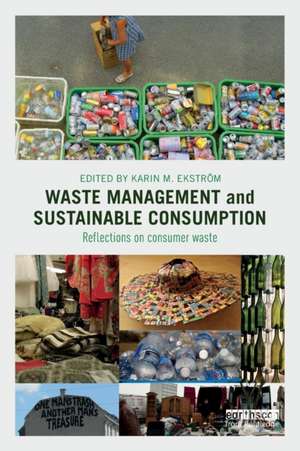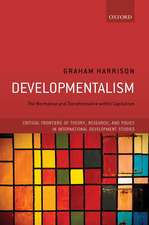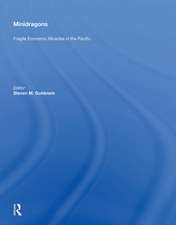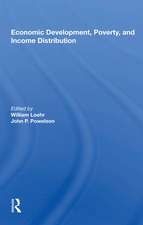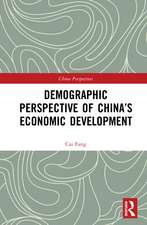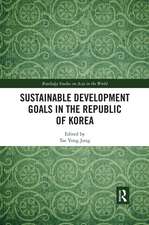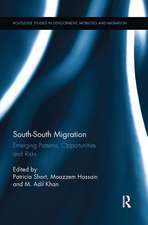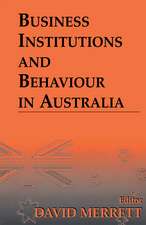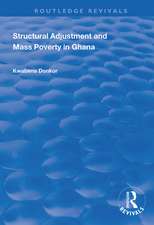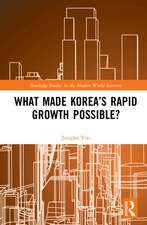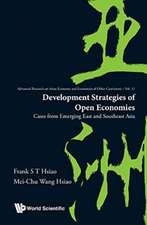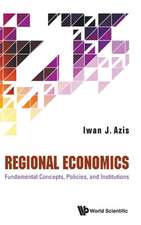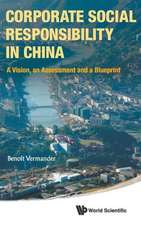Waste Management and Sustainable Consumption: Reflections on consumer waste
Editat de Karin Ekströmen Limba Engleză Paperback – 17 dec 2014
While research on waste management has previously focused on finding technological solutions to the problem, this book uniquely examines the social and cultural views of waste, shedding new light on the topic by emphasising the consumer perspective throughout. Drawing on a wide variety of disciplines including environmental, economic, social and cultural theories, the book presents philosophical reflections, practical examples and potential solutions to the problem of increasing waste. It analyses and compares case studies from countries such as Sweden, Japan, the USA, India, Nigeria and Qatar, bringing out valuable insights for the international community and generating a critical discussion on how we can move towards a more sustainable society.
This book will be of great interest to post-graduate students and researchers in environmental policy, waste management, social marketing and consumer behaviour, as well as policymakers and practitioners in consumer issues and business.
| Toate formatele și edițiile | Preț | Express |
|---|---|---|
| Paperback (1) | 370.76 lei 3-5 săpt. | +19.15 lei 4-10 zile |
| Taylor & Francis – 17 dec 2014 | 370.76 lei 3-5 săpt. | +19.15 lei 4-10 zile |
| Hardback (1) | 1001.07 lei 6-8 săpt. | |
| Taylor & Francis – 17 dec 2014 | 1001.07 lei 6-8 săpt. |
Preț: 370.76 lei
Nou
Puncte Express: 556
Preț estimativ în valută:
70.95€ • 73.80$ • 58.58£
70.95€ • 73.80$ • 58.58£
Carte disponibilă
Livrare economică 24 martie-07 aprilie
Livrare express 07-13 martie pentru 29.14 lei
Preluare comenzi: 021 569.72.76
Specificații
ISBN-13: 9781138797260
ISBN-10: 113879726X
Pagini: 254
Ilustrații: 7 black & white illustrations, 9 black & white tables, 2 black & white halftones, 5 black & white line drawings
Dimensiuni: 156 x 234 x 15 mm
Greutate: 0.36 kg
Ediția:1
Editura: Taylor & Francis
Colecția Routledge
Locul publicării:Oxford, United Kingdom
ISBN-10: 113879726X
Pagini: 254
Ilustrații: 7 black & white illustrations, 9 black & white tables, 2 black & white halftones, 5 black & white line drawings
Dimensiuni: 156 x 234 x 15 mm
Greutate: 0.36 kg
Ediția:1
Editura: Taylor & Francis
Colecția Routledge
Locul publicării:Oxford, United Kingdom
Public țintă
PostgraduateCuprins
Introduction Karin M. Ekström Part 1: Consumption and Waste 1. Recycling the Home: the Constant Flow of Domestic Stuff, Emotions and Routines Orvar Löfgren 2. The Curse of the New: How the Accelerating Pursuit of the New is Driving Hyper-Consumption Colin Campbell 3. Thinking Waste Sociologically Paul Hewer Part 2: Managing Waste 4. Factors Affecting Development of Waste Management: Experiences from Different Cultures Mohammad Taherzadeh and Karthik Rajendran 5. Waste Prevention Action Nets Hervé Corvellec and Barbara Czarniawska 6. Curbside Cartographies in an Urban Food-Waste Composting Program John W. Schouten, Diane M. Martin and Jack S. Tillotson 7. Cloth Loop: An Attempt to Construct an Actor-Network Eva Gustafsson, Daniel Hjelmgren and Barbara Czarniawska Part 3: Socio-Cultural Views on Waste 8. Exploring Food Waste Through the Lens of Social Practice Theories: Some Reflections on Eating as a Compound Practice Dale Southerton and Luke Yates 9. Environmental Consumer Socialization Among Generation Swing and Y: A Study of Clothing Consumption Karin M. Ekström, Daniel Hjelmgren and Nicklas Salomonson 10. Unpacking Corporate Sustainability: Sustainable Communication, Waste and the 3Rs in a Network Society Pierre McDonagh and Andrea Prothero Part 4: Preventing Waste 11. Upcycling of Pre-Consumer Waste: Opportunities and Barriers in the Furniture and Clothing Industries Daniel Hjelmgren, Nicklas Salomonson and Karin M. Ekström 12. Post-Ownership Sustainability Russell Belk 13. Supplementing the Conventional 3R Waste Hierarchy: Considering the Role of Carbon Rationing Maurie J. Cohen 14. Afterword Richard Wilk
Recenzii
"In a global economy dependent upon ever rising levels of consumption, waste is the material artefact that is steadily consuming fragile eco-systems and accelerating the pace of climate change. In this book, an interdisciplinary group of scholars analyze waste not merely as a technical problem but as configurations of practices and meanings that are embedded in broader socio-cultural systems and institutional structures. This theoretically innovative, cross cultural and eminently practical study of waste, and how societies can better manage its deleterious consequences, is both timely and fascinating."
Craig J. Thompson, University of Wisconsin-Madison, USA
"In gathering more contributors to 'waste's table', this volume demonstrates the claim made by Richard Wilk in its afterword: that waste is the single most important link between population, consumption and climate change. In showing how waste is inexorably a matter of consumption, it will surely gather more contributors to the debate."
Nicky Gregson, Durham University, UK
"This volume has an absolutely essential message: achieving real sustainability requires understanding the social and cultural dimensions of consumption. In a carefully composed set of nuanced powerful chapters, some of the most eminent scholars in the field of critical consumption studies provide a wealth of arguments that help us realize why people consume and why the vicious cycles of production and consumption are so extremely hard to break. Here we learn, once and for all, that this concerns the habits of the heart and the deepest layers of identity production and that sustainable consumption simply will not be achieved just by adding more sophisticated recycling technologies or incentives to conserve."
Sverker Sörlin, KTH Royal Institute of Technology, Sweden
"Among the strengths of the book are the diversity of the authors' backgrounds (engineering, business, sociology, etc.) and the variety of topics they address. The many good references and index increase the usefulness of this work. Summing Up: Recommended. All readership levels."
CHOICE, L. E. Erickson, Kansas State University
Craig J. Thompson, University of Wisconsin-Madison, USA
"In gathering more contributors to 'waste's table', this volume demonstrates the claim made by Richard Wilk in its afterword: that waste is the single most important link between population, consumption and climate change. In showing how waste is inexorably a matter of consumption, it will surely gather more contributors to the debate."
Nicky Gregson, Durham University, UK
"This volume has an absolutely essential message: achieving real sustainability requires understanding the social and cultural dimensions of consumption. In a carefully composed set of nuanced powerful chapters, some of the most eminent scholars in the field of critical consumption studies provide a wealth of arguments that help us realize why people consume and why the vicious cycles of production and consumption are so extremely hard to break. Here we learn, once and for all, that this concerns the habits of the heart and the deepest layers of identity production and that sustainable consumption simply will not be achieved just by adding more sophisticated recycling technologies or incentives to conserve."
Sverker Sörlin, KTH Royal Institute of Technology, Sweden
"Among the strengths of the book are the diversity of the authors' backgrounds (engineering, business, sociology, etc.) and the variety of topics they address. The many good references and index increase the usefulness of this work. Summing Up: Recommended. All readership levels."
CHOICE, L. E. Erickson, Kansas State University
Descriere
Waste reduction is a complex challenge for the promotion of sustainable consumption. This book presents philosophical reflections, practical examples and potential solutions to the problem of increasing waste. The authors represent a variety of disciplines encompassing different environmental, economic and social perspectives, theories and methods. As increasing waste is a growing global problem as a result of increasing consumption, a consumer perspective is therefore highly important. This book is unique in its emphasis on the consumer perspective throughout.
